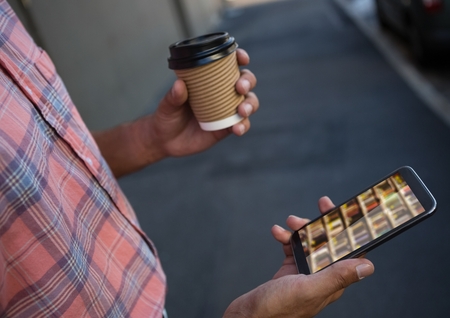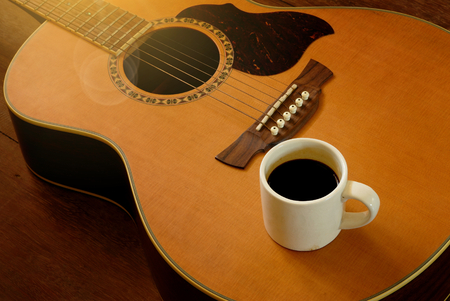Aromatic Mornings: The Ritual of Coffee in India
As the first rays of the sun peek through misty windows, South India awakens to the unmistakable aroma of freshly brewed filter kaapi. This is not just coffee; it’s a daily ritual woven into the tapestry of life from Chennai’s busy street corners to the tranquil coffee estates of Coorg. In Tamil households, mornings begin with the rhythmic clink of stainless steel tumblers and dabara sets, as hot decoction meets frothy milk—a sensory overture that marks the start of every day. Across Karnataka’s hills, planters sip their brew amidst emerald plantations, where every cup carries notes of rain-washed earth and tradition. This shared ritual creates a sense of community, drawing strangers together over steaming cups as laughter and conversation flow as freely as the coffee itself. It is here, in these aromatic mornings, that festivals take root—spaces where music and coffee converge, setting the stage for journeys filled with folk melodies and vibrant flavors.
2. Sounds of the Soil: Introduction to Indian Folk Instruments
Step into any Indian festival, and you are instantly embraced by a vibrant tapestry of music—an aromatic blend that is as earthy and invigorating as freshly brewed filter coffee. The pulse of these gatherings beats in sync with the rhythms of iconic folk instruments, each carrying centuries of tradition and regional stories in their sound. Whether you are savoring a steaming cup in a bustling Kolkata café or wandering through the bylanes of Rajasthan during a mela, the melodies of dholak, tabla, and shehnai are never far away. These instruments are more than musical tools; they are cultural companions, echoing the very soul of India.
Folk Instruments That Shape the Festival Mood
| Instrument | Region | Distinctive Sound |
|---|---|---|
| Dholak | North India | Warm, robust beats—often at the heart of folk dance circles |
| Tabla | Across India | Intricate rhythms—pairs perfectly with both classical ragas and street tunes |
| Shehnai | Uttar Pradesh & Maharashtra | Soulful, reedy notes—adds a ceremonial touch to weddings and festivals |
The dholak’s deep resonance sets the festive pace, drawing people together in joyous dance and laughter. Meanwhile, the tabla converses in complex taal (rhythmic cycles), inviting listeners into a meditative state—a reflection of India’s philosophical spirit. The shehnai, often associated with auspicious beginnings, weaves delicate notes into the air like incense drifting through temple courtyards. Together, these sounds flavor every festival, much like spices enrich a cup of masala chai. In India’s lively coffeehouses or outdoor celebrations, these instruments don’t just accompany festivities—they create memories, infusing every gathering with unmistakable local flavor.

3. Festival Vibes: Where Coffee Meets Melodies
Step into the heart of India’s most colourful festivals—where the air hums with anticipation and every corner brims with life. Picture a crisp morning during Pongal in Tamil Nadu, with the aroma of freshly brewed filter coffee wafting through the courtyard as families gather around a bubbling pot of sweet Pongal rice. Elders sip their kaapi from stainless steel tumblers, while children sway to the earthy beats of the thavil and nadaswaram, folk instruments that announce joy and prosperity. The rhythms are infectious, carrying stories and blessings from generation to generation.
As you wander further north to celebrate Holi, the festival of colours, another scene unfolds. Here, amidst clouds of gulaal and laughter, chai stalls spill over with friends and strangers alike sharing cups of strong masala coffee. The dholak and manjira play in quick succession, their lively tunes inviting everyone—no matter where they’re from—to join in spontaneous dance. It’s a melody that bridges differences, weaving together moments of camaraderie and shared heritage.
Across India’s vast landscape, these festive gatherings become living tapestries—woven with music, conversation, and the deep comfort of coffee. Whether it’s an intimate rooftop concert at dusk or a bustling street parade at dawn, the spirit is unmistakable: togetherness found in every note played and every sip shared. This is where coffee meets melodies—an invitation to savour both tradition and celebration, Indian-style.
4. Local Jams: Artisans and Musicians Brewing Harmony
In the heart of India’s bustling bazaars and vibrant festival grounds, magic unfolds when humble coffee vendors and local musicians cross paths. Their worlds, though seemingly apart, blend together to form an unforgettable cultural raga—a symphony where the aroma of freshly brewed filter coffee mingles with the soulful notes of folk instruments like the dholak, ektara, and bansuri.
Walk through a village fair in Karnataka or a mela in Rajasthan, and you might find a chaiwala pouring steaming kaapi as a dholak player drums up rhythm. These spontaneous collaborations are more than just background noise—they are living stories of community spirit and creative energy. The barista’s quick hands keep pace with the ektara’s twang, while customers tap their feet, turning every sip into a celebration.
Such scenes aren’t rare. Street corners become impromptu stages where artisans selling hand-painted cups or coir mats nod along to wandering minstrels. The exchange is mutual: musicians draw crowds that linger for one more cup, while the vendors’ stalls provide a welcoming space for melodies to bloom.
Marketplace Melodies: Who’s Brewing What?
Character |
Craft |
Instrument/Offering |
Cultural Vibe |
|---|---|---|---|
| Coffee Vendor (Kaapiwala/Chaiwala) | Traditional South Indian Filter Coffee / Masala Chai | Copper Dabara Set / Clay Kulhad | Warm hospitality & earthy aromas |
| Street Musician | Folk Songs & Rhythms | Dholak, Ektara, Bansuri, Shehnai | Pulsating beats & soulful tunes |
| Artisan Seller | Handicrafts & Pottery | Painted Cups, Bamboo Flutes | Aesthetic touch & local artistry |
Stories from the Ground
In Kerala’s Onam festival, Asha chechi pours frothy kaapi as her brother strums the chenda drum—a family duet that gathers children and elders alike. In Kolkata’s College Street, Rabindra Sangeet flows from a harmonium as students sip on piping hot “adda” coffee from roadside stalls. These moments—unscripted yet deeply rooted—capture the essence of India’s folk soul. Here, every festival is both a musical journey and a coffee-fueled gathering where artisans and artists brew harmony with every note and every pour.
5. Sips and Strings: Experiencing Live Performances
There’s a rare, earthy delight in cradling a hot tumbler of South Indian filter coffee while the hypnotic drone of a tanpura or the playful beats of a dholak fill the air. Whether you find yourself at an open-air mehfil under fairy lights in Bengaluru or tucked into a bustling café in Delhi’s Hauz Khas Village, the synergy between coffee and folk music is unmistakable. Each sip deepens your immersion—the bold notes of chicory-laced coffee warming your spirit as a baul singer’s voice soars, or as nimble fingers coax melodies from a santoor.
These live performances are more than mere background music; they’re invitations to experience India’s living heritage up close. Modern cafés now host intimate gigs where instruments like the shehnai, mridangam, and bansuri take center stage, creating new spaces for young urbanites to reconnect with their roots. The clink of cups merges with the rhythm of tabla—each sound telling its own story.
Coffeehouses here become cultural crossroads. You might overhear patrons debating the nuances of a Rajasthani folk ballad or see artists jamming impromptu after-hours. The fusion is organic—coffee’s robust aroma mingling with melodies that have echoed through generations. To truly savour it, let yourself linger: let the heady swirl of music and caffeine transport you, even if just for one evening, into the heart of India’s folk soul.
6. Keeping Traditions Alive: Fusion and Modern Touches
Step into any bustling metro city in India—be it Mumbai, Bangalore, or Delhi—and you’ll find a new wave of youthful energy coursing through its veins. Indian youth are not just sipping on their artisanal filter coffee; they are also remixing the very soul of their heritage. In hip urban cafés, where the aroma of freshly ground beans mingles with the hum of conversation, a cultural renaissance is brewing. Here, innovative musicians are taking traditional folk instruments—think the earthy dholak, soulful sarangi, and melodious flute—and blending their sounds with global genres like jazz, electronic beats, and indie pop.
This fusion isn’t just about creating catchy tunes; it’s about keeping traditions alive in a fast-changing world. At local festivals and open-mic nights, you might hear a tabla riff intertwined with acoustic guitar, or a bansuri flute soaring over a lo-fi electronic track. The result is a vibrant soundscape that bridges generations and continents. Young artists see this as a way to honour their roots while expressing themselves in a language that resonates worldwide.
Many of these collaborations are born in the warm corners of specialty coffee shops—spaces that feel as much like creative studios as they do cafés. Here, amidst latte art and exposed brick walls, musicians gather for jam sessions that blur the lines between classical ragas and modern rhythms. The audience is just as eclectic: college students, techies on break, and seasoned music lovers all come together over shared cups of chai or cold brew.
For India’s new generation, coffee and music have become companions on a journey of rediscovery. The clinking of mugs and the strumming of sitars form an unlikely yet harmonious duet—a celebration of both nostalgia and novelty. Through these fusions, folk music finds fresh relevance, ensuring that its spirit thrives even as its form evolves.
So next time you find yourself at an urban festival or tucked into a stylish café in India, listen closely. You might just catch the heartbeat of tradition pulsing to a brand-new rhythm—proof that culture doesn’t fade; it transforms, one innovative note (and one perfect cup) at a time.


